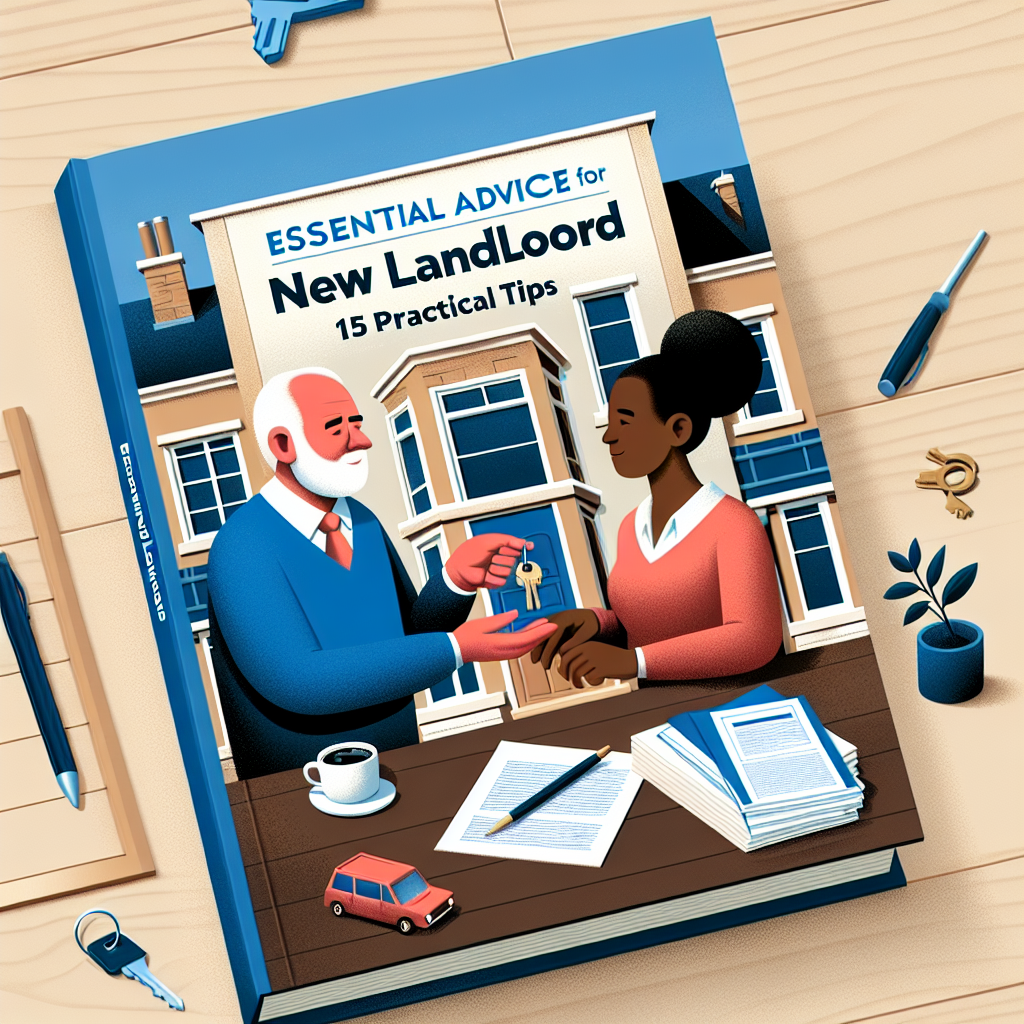-
Table of Contents
- Essential Advice for New Landlords: 15 Practical Tips
- 1. Understand Local Laws and Regulations
- 2. Screen Tenants Thoroughly
- 3. Draft a Comprehensive Lease Agreement
- 4. Set Competitive Rent Prices
- 5. Maintain Open Communication
- 6. Conduct Regular Property Inspections
- 7. Handle Maintenance Requests Promptly
- 8. Keep Detailed Records
- 9. Understand Your Tax Obligations
- 10. Invest in Landlord Insurance
- 11. Create a Move-In/Move-Out Checklist
- 12. Be Prepared for Vacancies
- 13. Stay Organized with Property Management Tools
- 14. Build a Network of Professionals
- 15. Continuously Educate Yourself
- Conclusion
Essential Advice for New Landlords: 15 Practical Tips

Becoming a landlord can be a rewarding venture, but it also comes with its own set of challenges and responsibilities. Whether you’re renting out a single property or managing multiple units, it’s crucial to be well-prepared. This article provides 15 practical tips to help new landlords navigate the complexities of property management effectively.
1. Understand Local Laws and Regulations
Before renting out your property, familiarize yourself with local landlord-tenant laws. These regulations can vary significantly from one location to another and cover aspects such as security deposits, eviction procedures, and tenant rights.
- Research state and local housing laws.
- Consult with a real estate attorney if necessary.
- Stay updated on any changes in legislation.
2. Screen Tenants Thoroughly
Finding reliable tenants is crucial for a successful rental experience. Implement a thorough screening process to minimize the risk of problematic tenants.
- Conduct background and credit checks.
- Verify employment and income.
- Check references from previous landlords.
3. Draft a Comprehensive Lease Agreement
A well-drafted lease agreement is essential for setting clear expectations and protecting your interests. Ensure that your lease covers all necessary terms and conditions.
- Include details on rent amount, due dates, and late fees.
- Specify maintenance responsibilities.
- Outline rules regarding pets, smoking, and subletting.
4. Set Competitive Rent Prices
Setting the right rent price is crucial for attracting tenants while ensuring profitability. Conduct market research to determine competitive rates in your area.
- Analyze rental prices of similar properties.
- Consider the amenities and condition of your property.
- Adjust rent prices based on demand and seasonality.
5. Maintain Open Communication
Effective communication with your tenants can prevent misunderstandings and foster a positive landlord-tenant relationship. Be approachable and responsive to their concerns.
- Provide multiple contact methods (phone, email, etc.).
- Respond to inquiries and maintenance requests promptly.
- Keep tenants informed about any changes or updates.
6. Conduct Regular Property Inspections
Regular inspections help ensure that your property is well-maintained and that tenants are adhering to the lease terms. Schedule inspections at least once or twice a year.
- Give tenants proper notice before inspections.
- Check for any damages or maintenance issues.
- Document the condition of the property with photos.
7. Handle Maintenance Requests Promptly
Addressing maintenance issues quickly not only keeps your property in good condition but also shows tenants that you care about their well-being.
- Set up a system for reporting maintenance requests.
- Prioritize urgent repairs (e.g., plumbing, heating).
- Keep a list of reliable contractors and service providers.
8. Keep Detailed Records
Maintaining accurate records is essential for managing your rental property effectively. Keep track of all financial transactions, communications, and maintenance activities.
- Use property management software for record-keeping.
- Store copies of lease agreements and inspection reports.
- Keep receipts and invoices for all expenses.
9. Understand Your Tax Obligations
As a landlord, you have specific tax responsibilities. Familiarize yourself with the tax implications of rental income and expenses to ensure compliance and maximize deductions.
- Report rental income on your tax return.
- Deduct eligible expenses (e.g., repairs, property management fees).
- Consult with a tax professional for guidance.
10. Invest in Landlord Insurance
Landlord insurance provides coverage for property damage, liability, and loss of rental income. It’s a crucial safeguard against unforeseen events.
- Compare policies from different insurance providers.
- Ensure coverage for natural disasters, vandalism, and liability.
- Review and update your policy annually.
11. Create a Move-In/Move-Out Checklist
A move-in/move-out checklist helps document the condition of the property before and after a tenant’s occupancy. This can prevent disputes over security deposits.
- Conduct a walkthrough with the tenant during move-in and move-out.
- Note any existing damages or issues.
- Have the tenant sign the checklist for acknowledgment.
12. Be Prepared for Vacancies
Vacancies are inevitable, so it’s essential to plan for them financially. Set aside a portion of your rental income to cover periods when the property is unoccupied.
- Maintain an emergency fund for vacancies and unexpected expenses.
- Market your property proactively to minimize vacancy periods.
- Consider offering incentives to attract new tenants quickly.
13. Stay Organized with Property Management Tools
Property management tools can streamline various aspects of managing your rental property, from tenant screening to rent collection.
- Use software for tracking rent payments and maintenance requests.
- Automate rent reminders and late fee notices.
- Keep digital records of all documents and communications.
14. Build a Network of Professionals
Having a network of reliable professionals can make property management more manageable. Build relationships with contractors, real estate agents, and other landlords.
- Join local landlord associations or online forums.
- Attend real estate networking events.
- Seek recommendations for trustworthy service providers.
15. Continuously Educate Yourself
The real estate market and landlord-tenant laws are constantly evolving. Stay informed by continuously educating yourself through various resources.
- Read books and articles on property management.
- Attend workshops and webinars.
- Subscribe to industry newsletters and publications.
Conclusion
Becoming a successful landlord requires careful planning, effective communication, and a proactive approach to property management. By following these 15 practical tips, new landlords can navigate the challenges of renting out properties and create a positive experience for both themselves and their tenants. Remember to stay informed, stay organized, and always prioritize the well-being of your tenants. With the right strategies in place, you can build a profitable and sustainable rental business.








